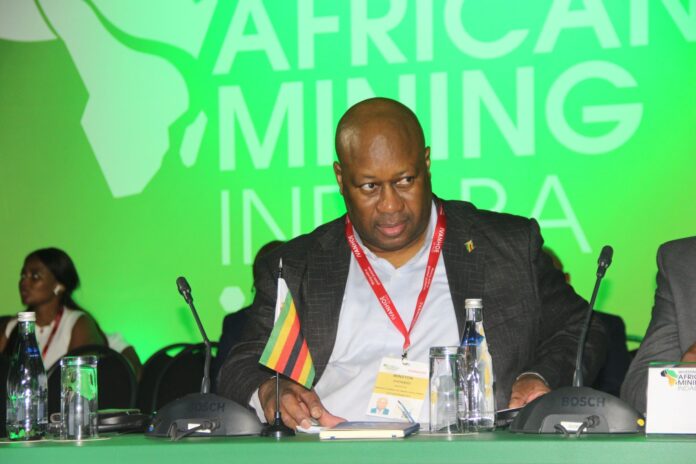In a long-awaited move, Zimbabwe is set to table a revised version of its Mines and Minerals Act in Parliament by May 2025. The Minister of Mines and Mining Development Hon Winston Chitando confirmed that critical consultations have already been conducted.
By Ryan Chigoche
Chitando confirmed this at the ongoing Investing in African Mining in Indaba 2025.
The amendment process has been delayed for over two decades, resulting in challenges across the sector, including environmental degradation, inadequate protection of local communities, land rights violations, lack of transparency, increased corruption risks, and neglect of artisanal and small-scale miners.
The current legislation governing the sector dates back to 1961. The proposed amendments seek to modernize the law, incorporating environmental considerations and aligning it with contemporary standards.
Zimbabwe holds significant reserves of critical minerals like lithium, platinum group metals (PGMs), copper, and graphite. These resources, which are vital for technologies such as electric vehicles and renewable energy, were not part of the original legislation.
Speaking at the African Mining Indaba in Cape Town, Minister of Mines and Mining Development Winston Chitando emphasized that the amendments would address strategic minerals.
“Sections of the Act will deal with strategic minerals, whereby certain minerals will be deemed strategic. These clauses will provide for the issuance and management of titles related to strategic minerals. The legislation will be presented to Parliament within the next three months. The government has proposals, but I can’t go into detail at this stage,” Chitando said.
If passed, the amended Act will regulate critical minerals, including lithium and rare earth metals, while addressing illegal mining and strengthening the enforcement of sustainable practices.
Chitando highlighted the importance of extensive consultations with stakeholders such as the Chamber of Mines, the Zimbabwe Miners Federation, and the public, ensuring transparency and inclusivity in the process.
“The consultation process is critically important, especially when engaging with industry and investors. We’ve gathered views on the legislative framework and how to integrate these into the new Mines and Minerals Act,” he noted.
As global demand for strategic minerals rises, Zimbabwe is positioning itself as a key supplier for technologies like electric vehicle batteries and renewable energy systems. The revised Act is expected to provide greater clarity and security for investors while fostering a more sustainable mining industry.
The government hopes that this legislative reform, alongside efforts to address energy insecurity, will revitalize the mining sector and cement Zimbabwe’s position as a major player in the global mining landscape.




